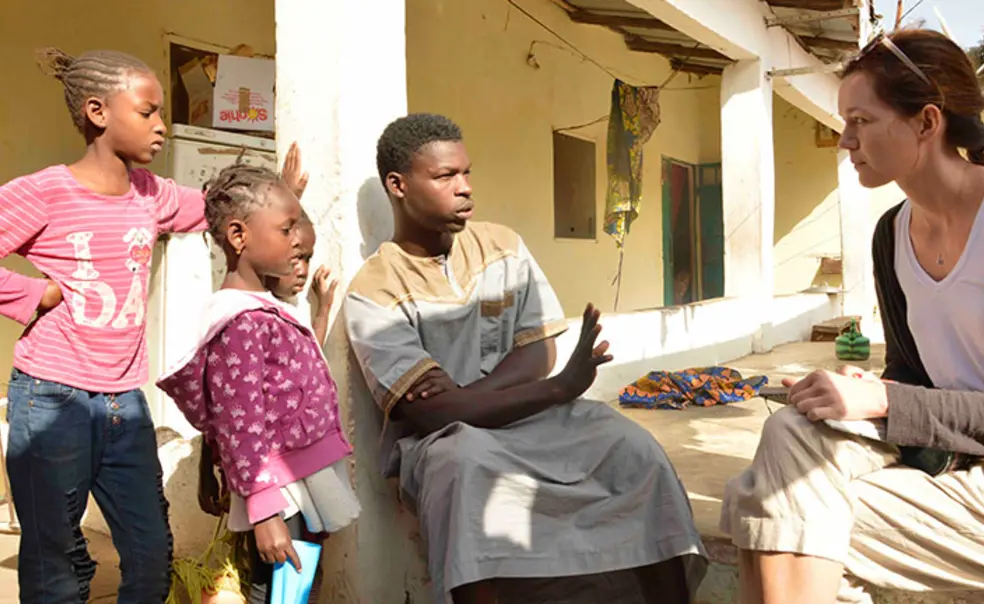Nellie Peyton ’14 Reports Stories of Everyday Life in West Africa
In August, when Nellie Peyton ’14 flew to Sierra Leone to cover a story on female genital mutilation, she visited a local NGO that had convinced one village to tear down the shrine where it performed the ritual. The choice was symbolic of giving up a practice that, in many countries across West Africa, still represents a young woman’s rite of passage. She asked the village chief and women living there what compelled the community to stop. They answered simply: the money.
Peyton, at first, tried looking for the story she expected to find. “Now that you’ve given it up, do you think your girls will be protected?” she asked, hoping that they would cite information offered by the NGO about extreme health risks for women. But their answer was the same. The community would redirect the costs for ceremonial meals and dresses to pay for school fees and food. After looking back at her notes hours later, Peyton wrote that story instead.
For the past four years since moving to Dakar, Senegal, Peyton has been tasked with the challenge of explaining context and life to an audience continents away. Her job as a foreign correspondent for Thomson Reuters Foundation News isn’t far from the academic role she chose as a comparative literature student at Princeton. Namely, that of a translator.
Peyton, who specialized in post-colonial French literature, saw Senegal for the first time only months before moving there as an intern for Reuters. She didn’t know what to expect. Can most Americans visualize an African city? “I don’t think we get reporting from Africa on the normal things we get reporting on from Europe, like TV shows and restaurants,” she says. “But those things are all happening here.” Part of her goal soon became to tell stories about West Africa that moved beyond those about war and conflict. She wanted to tell the stories of everyday life.
Peyton spent the first year and a half reporting on basic news and politics in the region, which ranged from coverage on local elections to the cocoa market to terrorist attacks. This was before accepting a position as a correspondent for the Thomson Reuters Foundation, a charitable arm of Reuters focused on human rights stories. The Foundation let her report the stories that the mainstream media often leaves out: successful startups, urban development projects, transforming cities. Still, most of the news lies outside of Senegal, in countries painted with political upheaval and conflict.
Being a correspondent and expat at once meant learning about Dakar from two perspectives. Reporting gave her the broad context to understand political and economic dynamics in the area. But the stuff of day-to-day life, what people believe and how they act, emerges slowly. “I’m only ever going to be able to write about West Africa as an outsider,” she says. “And I wonder sometimes if a local were to write about some of the things I cover, how different would the story look?”
Peyton and her colleagues are sometimes frustrated by the industry of selling stories; not all news that feels important in West Africa will sell to European and American audiences. The trick, she says, is drawing connections between the news she reports and her readers abroad. She still studies the limitations of writing about a language and place not her own. For now, Peyton prefers it this way. Plus, American journalism is a beast she isn’t ready to meet. “That’s almost a whole different job,” she says. “Almost everything about my job here I think of as explaining a foreign place.” That’s what she likes about it.












No responses yet